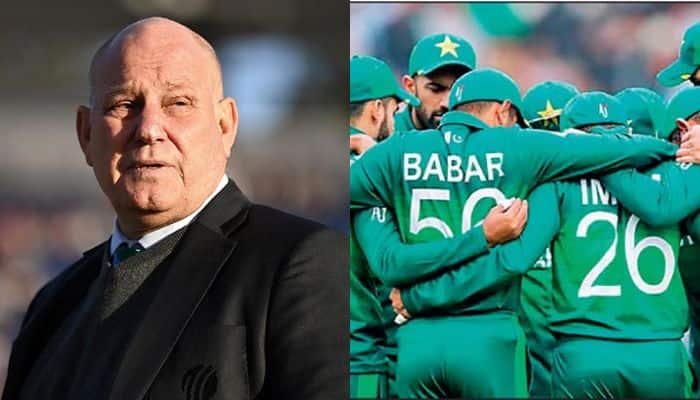Asia Cup 2025 Update: ICC Stands Firm As PCB Pushes For Pycroft’s Removal After Handshake Fiasco
The Asia Cup 2025 has been dominated as much by off-field controversies as on-field action, with the Pakistan Cricket Board (PCB) threatening to boycott the tournament over the now-infamous handshake fiasco in the India vs Pakistan clash. At the heart of the storm is match referee Andy Pycroft, whom the PCB accused of mishandling the situation. But the International Cricket Council (ICC) is reportedly set to shut the door on PCB’s plea, calling the demand unfounded and without precedent.
India’s No-Handshake Act Sparks Fresh Rivalry Debate
The controversy erupted after India’s players refused to shake hands with Pakistan’s cricketers following their Asia Cup 2025 Group A win in Dubai. India captain Suryakumar Yadav explained the gesture as a mark of solidarity with the victims of the Pahalgam terror attack, where 26 civilians were killed earlier this year.
While India’s act drew mixed reactions globally, it was Pakistan’s official complaint that escalated the issue. PCB accused Pycroft of “initiating” the no-handshake row at the toss and formally lodged a protest with the Asian Cricket Council (ACC) before escalating the matter to the ICC.
PCB’s Hardline Stand and Threats of Boycott
PCB chairman Mohsin Naqvi, who also heads the ACC, alleged violations of the ICC Code of Conduct and the Spirit of Cricket. He demanded Pycroft’s immediate removal from the referee panel and even warned that Pakistan could withdraw from the Asia Cup if action was not taken.
“The PCB has demanded an immediate removal of the match referee from the Asia Cup,” Naqvi posted on social media, framing the issue as a matter of principle. Pakistan’s stance, however, has been viewed by many observers as more political than practical.
ICC’s Position: No Grounds for Action
Reports suggest the ICC is unconvinced by PCB’s complaint, with sources indicating that Pycroft’s role was “minimal.” According to a Cricbuzz report, Pycroft merely conveyed a message—allegedly originating from the ACC—to avoid embarrassment at the toss.
The ICC believes that acceding to PCB’s request would set a dangerous precedent, where member boards could pressure the governing body into replacing officials mid-tournament. Furthermore, the ICC is expected to remind PCB that handshakes are not mandatory under the MCC’s Spirit of Cricket manual, but merely encouraged as a gesture of sportsmanship.
ACC’s Middle Ground: A Temporary Fix?
Amid mounting tensions, the ACC is considering a compromise—removing Pycroft from officiating Pakistan’s matches for the rest of the tournament. Names like Richie Richardson have been floated as acceptable alternatives. While this solution may appease Pakistan temporarily, it also highlights the tug-of-war between regional politics and global cricket governance.
The Bigger Picture: Cricket vs Politics
The handshake controversy once again underscores how India vs Pakistan cricket often transcends the sport itself. What began as a symbolic act by India to highlight a national tragedy spiraled into a geopolitical flashpoint. For the PCB, the issue is as much about asserting authority as defending “the spirit of cricket.”
Yet, cricket’s custodians—both ICC and MCC—appear reluctant to rewrite rules or bend policies for political optics. Their stance suggests a firm commitment to protecting the integrity of match officials and avoiding the politicization of the game.




